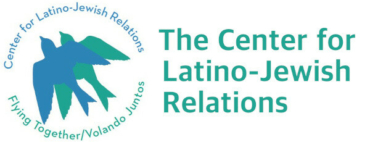07-24-2025 Matot Ma’asey

לו שלום ירושלים
Pray for the peace of Jerusalem
This week we conclude our yearly reading of the Bible’s fourth book, “Sefer Ba’Midbar” (in English translation, “Book of Numbers”) with a double Torah portion. The book’s final parashiyot are: Matot and Ma’asey (Numbers 30:2-36:13). These two sections review the Israelites’ geographical, temporal, and spiritual travels through their 40 years of wandering in the Sinai Peninsula. These sections are not merely a summary of these past events but are also reminders of the interconnectivity of time, space, and values.
The “Book of Numbers” is a book about different types of journeys, both national and personal. The book describes not only the Jewish people’s journey from physical and spiritual slavery to freedom, but it also portrays our personal journey as we move through time in space from immaturity to maturity.
The text takes us on the multifaceted journey by means of the Hebrew verbal root: <D.B.R>. For non-Hebrew speakers it is important to understand that Hebrew is different from many other languages in that it derives its vocabulary from verbal roots that connect words through a consistent, but not always apparent, commonality. In this case we note that the word for desert or wilderness (midbar) is linguistically connected to the word for speech (midabber). Perhaps the text is teaching us that at times, and despite our best intentions, we fill our life’s journey with empty words and promises instead of concrete actions.
From that perspective we see that “Sefer B’Midabar” (Book of Numbers) is more than a mere travel log, it is also a book about the essence of our being, our ideals, and the promises we make to each other and to ourselves. By beginning with the words: “Lo yachel dvaro b’chol ha’yotze mipiv/he shall not desecrate his word/actions; but shall do as he promised” (30:3) the book reflects the challenges between speech and actions that occur throughout our lives.
The Tanach (Hebrew Bible) warns us not to place style over substance. It is less interested in one’s intentions than it is in one’s actions. It is for this reason that the Biblical text reminds us that the results of a societal or personal journey not based in reality are our being in spiritual deserts of unrealized expectations and personal disappointments. This fourth book of the Bible teaches us that we must base our journey through life, just as our people’s journey from Egypt to Israel, not on mere words and feeling but on facts and actions.
The “Book of Numbers” teaches us that it is up to us to decide if we wish to live merely in a wilderness of words or in a promised land of concrete accomplishments. What we choose determines not only the quality of our society and but also our lives. What do you choose?
YouTubes for the week
Three songs in the style of Klezmer
Tumbalalajka
Hava Nagillahß a la Klezmer
Az der rebbe tanst
Please pray for Israel’s soldiers and the safe return of all of the remaining hostages.
